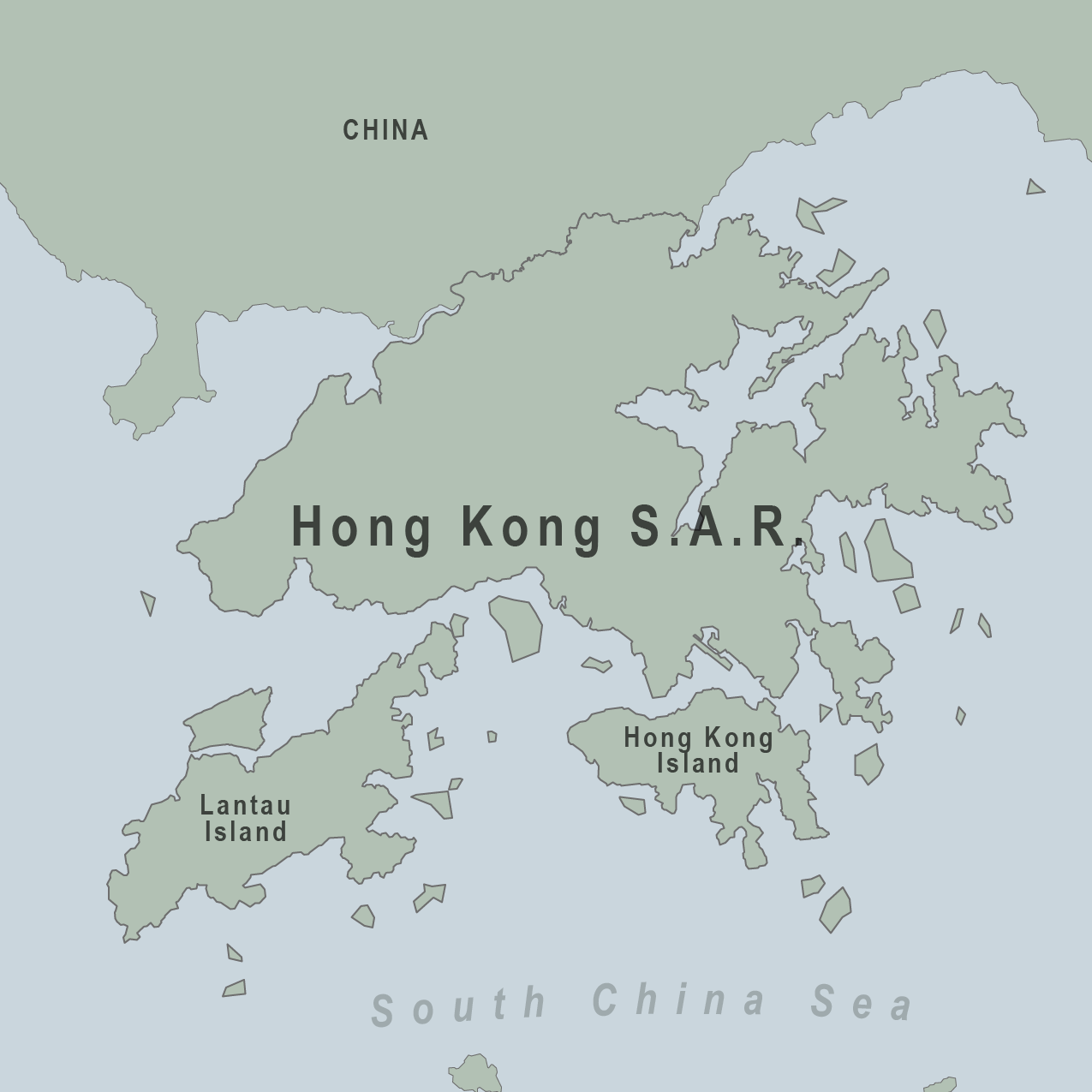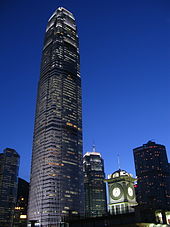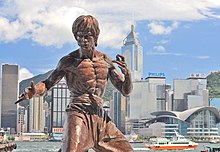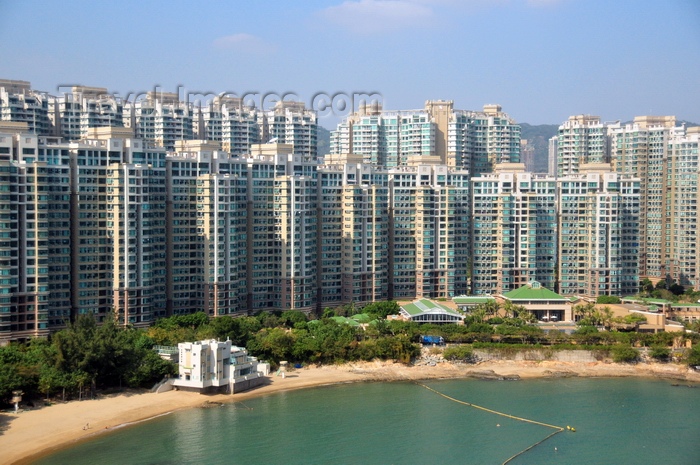 |
| VIEW OF HONG KONG FROM VICTORIA PEAK |
| LOCATION OF HONG KONG |
∙ Land Mass/Continent: An island on the east coast of Asia (Continent No. 5 of 7 on our journey), and the south coast of China
∙ About Hong Kong: Hong Kong is a “special administrative region” (SAR) of the People’s Republic of China (PRC)
 |
| HONG KONG SAR |
∙ Distance From Home (San Diego, CA): 7,344 miles
∙ The Water That Got Us Here: Pacific Ocean; Hong Kong is enclosed by the Pearl River Delta and South China Sea
∙ ITS PLACE IN HISTORY/INTERESTING FACTS
∙ Currency: Hong Kong Dollar (the 8th most traded currency in the world, with a 2.4% share of average daily turnover)
∙ Local time:
∙ Hong Kong used to be a British territory
∙ It became a colony of the British Empire after the First Opium War (1839-42)
∙ It was (among other things) destruction of Chinese war junks (ancient Chinese sailing vessles) by the ship Nemesis, which led to British victory; the Chinese referred to it as the “devil ship”
∙ In 1997, after 156 years of British rule and years of “talks” – escalating to a “war of words” – China resumed sovereignty
∙ Great Britain and the PRC agreed Hong Kong would be a “special administrative region”; the concept is “one country, two systems”: The socialist system of China would not be practiced in Hong Kong, and its previous capitalist system and way of life would continue for at least 50 years; HK would have a “high degree of autonomy”. Hong Kongers do not know, and some fear, what will occur when this 50-year period ends.
∙ In HK, the maximum income tax rate is 15%, and the money goes to HK, not to China; they have no government-paid retirement fund
∙ They have so-called "elections" for the Chief Executive, but China gives names of 3 candidates from China and 1 from HK; they always choose the 1 from HK, so it's a "Hobson's Choice" (no choice at all)
∙ Chinas is communistic, so everything belongs to the government; in HK, residents can own the land for up to 99 years (after that, they pay for an extension)
∙ Unlike China, Hong Kongers also enjoy freedom of speech (i.e., they can talk about the government), freedom of religion, freedom of travel and a minimum wage of $28HK per hour (China is famous for its "cheap labor", where people work 6 days a week, 10 hours a day, for at little as $200US per month)
∙ Perhaps more importantly, HK does not have China's one-child policy (i.e., if one has more than one child in China, they pay a penalty and get no benefits for the second/third child), so there's lots of illegal immigration - if a baby is born in HK, the parents can move to HK and get benefits for their second/third child
∙ Almost everything in HK is imported from China, but goods in HK are sold duty free (cheaper) - so HK's become a major import-export hub
∙ Hong Kong is known as one of the "Four Asian Tigers" (i.e., the high-developed economies of Hong Kong, Singapore, South Korea and Taiwan)
∙ Still, the impending change in Hong Kong resulted in a 1-million person immigration out of Hong Kong to the UK, US, Australia, Canada and neighboring countries, and a serious loss of capital to Hong Kong -- many seem to prefer Vancouver for college, given the lack of adequate college facilities in HK (and its uncertain future)
∙ Hong Kong’s legal system is entirely independent from China; it follows the English Common law tradition (like the US)
∙ Residents of mainland China do not have the right to live in or enter Hong Kong freely; yet, the influx of app. 45K mainlanders a year is significantly contributing to its population growth and an influx of Mandarin speakers to the area.
∙ In 1997, Hong Kong also suffered an economic double-blow, from the Asian financial crisis and the H5N1 avian influenza (bird flu)
∙ In 2003, Hong Kong was gravely affected by the outbreak of SARS (severe acute respiratory syndrome), with 1,755 infected and 299 deaths; they lost almost $50 million in contracts as a result
∙ They drive on the left, a remnant of British occupation (in mainland China, they drive on the right)
∙ Most Hong Kongers are Buddist, but they have freedom of religion here
∙ Hong Kong is renowned for its expansive skyline, with 7,650 skyscrapers (the most in the world), and its deep natural harbor
∙ Due to the lack of space, it developed into the world’s most vertical city (more people live or work above the 14th floor there than anywhere on Earth)
∙ HK has the most expensive real estate in the world, costing a minimum of $600US per square foot (i.e., a 2,000-SF apartment would run $1.2 million, so most people have smaller homes)
∙ The International Commerce Centre (1,588 feet high, 118 floors) is the tallest building in Hong Kong and the third tallest in the world
 |
| INTERNATIONAL COMMERCE CENTRE |
∙ It’s one of the world’s leading international financial centers, with a major capitalist service economy, characterized by low taxes and free trade
∙ It’s one of the most densely populated areas in the world, 95% by Chinese
∙ Bruce Lee, Jackie Chan and Jet Li all originate from Hong Kong cinema
 |
| STATUE OF BRUCE LEE |
∙ CLIMATE
∙ Hong Kong has a humid subtropical climate; the most temperate seasons are spring (when we’ll be there) and autumn
∙ Average low for March: 62.4
∙ Average high for March: 70.7
∙ In 1983, Typhoon Ellen ravaged Hong Kong, causing great damage to life and property
 |
| ABERDEEN HARBOR |
∙ HIGHLIGHTS/THINGS TO SEE
∙ The tram to the top of Victoria Peak
∙ Aberdeen Harbor (Little Hong Kong) and its fishing junks (ships)
No comments:
Post a Comment